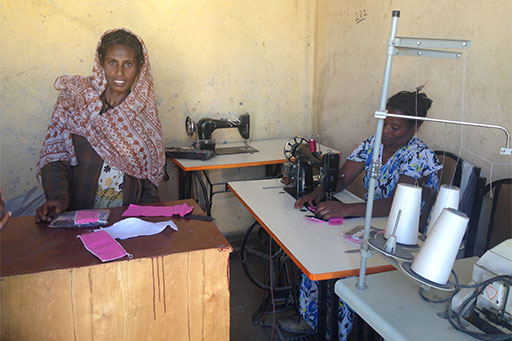3.4.5 Financial support
The challenges faced by women in society often make it difficult for them to break out of their traditional roles. However, there are many examples in Ethiopia of small-scale enterprises owned and run by women, which have been made possible by receiving financial support at the start. Case Study 3.3 is one such example.
Case Study 3.3 Wukro women in business
In the town of Wukro in the Tigray region, Helen, Meaza and a friend have started up a new business making and selling reusable sanitary pads (Figure 3.4). Their enterprise is supported by a WASH programme implemented by UNICEF with World Vision. The women were chosen by a women’s association, trained by World Vision and then provided with sewing machines and materials. They are supplying seven schools with the washable sanitary pads and also sell them to local women.
The new business has multiple benefits for women. It helps girls and women by providing effective, handmade sanitary pads that can be washed and re-used. It also generates income for the three women entrepreneurs.

(Adapted from Carazo, 2017)
3.4.4 Improving education
